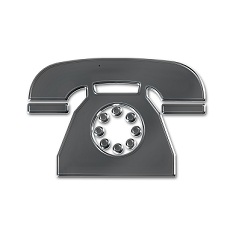 Most court reporters spend a large part of their time working independently with the ability to flex some of their schedule. While this lends flexibility that most court reporters enjoy, it also means we are responsible for our own time management with many deadlines to meet. Sometimes meeting all of those deadlines can seem daunting and overwhelming.
Most court reporters spend a large part of their time working independently with the ability to flex some of their schedule. While this lends flexibility that most court reporters enjoy, it also means we are responsible for our own time management with many deadlines to meet. Sometimes meeting all of those deadlines can seem daunting and overwhelming.
To help tackle the overwhelm, here are some time management tips that will help you keep yourself organized and moving forward, accomplishing more work in less time.
Take the first 30 minutes of every day to plan your day.
Don’t start your day until you’ve completed your plan for how you will spend your time. For instance, are you going to work on editing your latest transcript first, then switch to proofreading later in the morning? Will you edit until the entire transcript is finished before switching tasks? Making decisions at the beginning of your day will allow you to easily move from one task to the next without hesitation.
Take five minutes before every task to decide what result you want to attain.
This will help you know what success looks like before you start. Take five minutes after each task to determine whether your desired result was achieved. If not, what was missing? What do you need to bring the task to completion?
Put up a “Do not disturb” sign when you absolutely have to get work done.
When I’m working in my home office and close my door, my family knows they are to let me work without disruption. Whether your office is in a traditional setting or a home office, it’s amazing how much you can get done when you are not being interrupted.
Resist answering the phone every time it rings.
Don’t answer email as soon as it shows up. Disconnect instant messaging. Don’t instantly give people your attention unless it’s absolutely crucial. Instead, schedule a time to answer email and return phone calls. Eliminating these constant interruptions can do wonders for boosting your productivity.
Break large, time-consuming tasks into smaller tasks.
Work on large tasks a few minutes at a time until you get them done. This works for large tasks as well as tasks you find yourself procrastinating over. For instance, when it’s time to organize my tax receipts, I know I would dread sitting down and going through all of them at once. So I have set up a plan, after consulting with my accountant, to spend a few minutes every week entering data. Spending a few minutes each week makes it easier to accomplish, and that way, I stay up-to-date.
Know when you work best.
Are you a morning person? Then plan your priority tasks for the morning. Not sure when you work your best? Discover your best time by monitoring your productivity over a period of time. Once you find your best time, set your schedule to keep your best time free for your most important work. I know that I need to do proofreading in the morning, because I am often not as fresh in the afternoon and find it difficult to stay on task. But in the morning, I can get through many pages easily and know I didn’t miss anything.
Know how you work best.
I like to alternate between standing and sitting when I do my proofing. I have a stand-up desk to make it easier for me to stay fresh and alert. If I get too comfortable as I’m proofing, I find I am not as engaged as I need to be. I sometimes set a timer so I don’t forget to change positions.
We all have our own time management skills that work for us. Adding a new skill from time to time will help you make the most of the time you do have and allow you to be more productive and less stressed.
 When I tell someone I’m a court reporter, often I’m asked, “What is that?” It’s difficult to explain what I do in a short sentence. To help describe what I do, I often hold my hands in front of me, as though on a keyboard, and say, “You know, the person with the little machine who sits in front of the judge in court.” And the person I am speaking to often says, “Oh, yes”. But there’s much more I’d like to tell them about what a court reporter does. So if you have ever wondered what a court reporter does, here is my answer.
When I tell someone I’m a court reporter, often I’m asked, “What is that?” It’s difficult to explain what I do in a short sentence. To help describe what I do, I often hold my hands in front of me, as though on a keyboard, and say, “You know, the person with the little machine who sits in front of the judge in court.” And the person I am speaking to often says, “Oh, yes”. But there’s much more I’d like to tell them about what a court reporter does. So if you have ever wondered what a court reporter does, here is my answer. Dawn Houghton is the owner of O’Brien and Bails Court Reporting and Video. She is also one of our court reporters in Grand Rapids and Kalamazoo, Michigan.
Dawn Houghton is the owner of O’Brien and Bails Court Reporting and Video. She is also one of our court reporters in Grand Rapids and Kalamazoo, Michigan.
 How many times have you called to hire a court reporter for a deposition only to find out the court reporter you called was not available on the date you requested? Most likely your next step was to call another reporter, and another, and another until you found one that was available.
How many times have you called to hire a court reporter for a deposition only to find out the court reporter you called was not available on the date you requested? Most likely your next step was to call another reporter, and another, and another until you found one that was available.